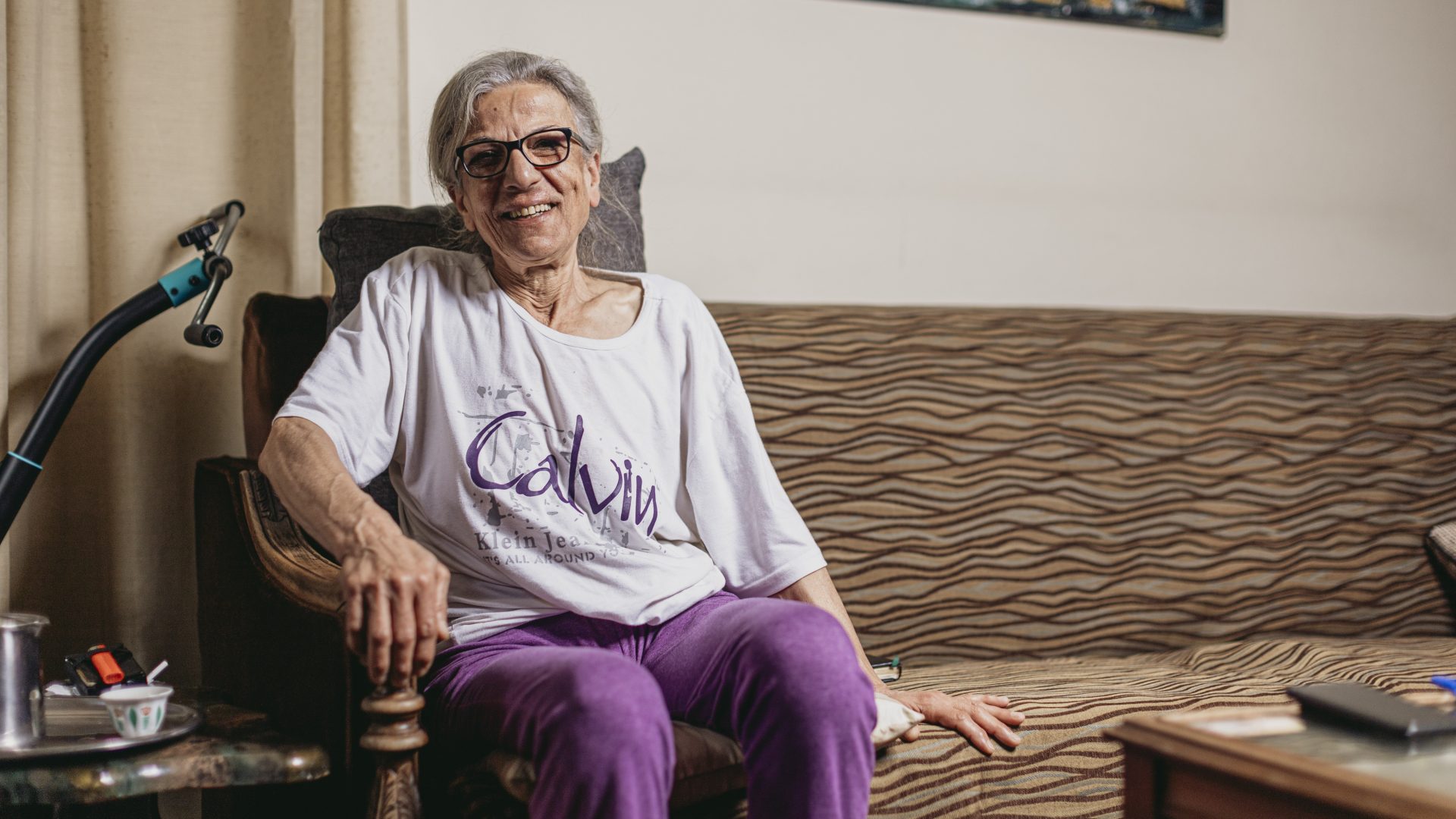Responding to urgent needs
“The idea for the Ageing Unit came from what we were witnessing on the ground – older people being left behind, particularly in times of crisis,” said Mariam Hijazi, the unit’s Project Coordinator. “This isn’t just about filling gaps in services; it’s about creating a long-term system that supports older people with dignity and respect.”
From chronic underfunding to fragmented care, Lebanon’s ageing population has historically received limited attention. The Ageing Unit aims to change that by focusing on four pillars: research, advocacy, capacity-building, and community engagement.
Building support systems that last
At the heart of the new unit is a commitment to tailored, sustainable support. Whether it’s providing mental health activities to combat isolation, or training caregivers in age-inclusive approaches, the goal is to create a more responsive and compassionate system.
“Older people often face complex challenges – financial insecurity, declining health, lack of mobility – yet they’re rarely included in planning or decision-making,” Mariam noted. “We want to change how society sees ageing: not as decline, but as a stage of life that can be active and meaningful.”
Policy change through partnership
The Ageing Unit is designed not just to deliver services, but to help shape policy. An advisory group – which includes older people themselves, local NGOs, ministries, and international partners – will help guide its priorities and ensure alignment with national needs.
Amel is already in regular dialogue with the Ministry of Social Affairs and the Ministry of Public Health, advocating for changes in public infrastructure and services to make them more age-inclusive.
“Public spaces, hospitals, even transportation – many are still inaccessible to older people,” said Mariam. “We’re working to change that by putting ageing issues on the policy agenda.”
Connecting generations
The unit also aims to bridge generational divides. Intergenerational activities – like community markets or joint storytelling events – will bring older and younger people together to share skills, ideas, and perspectives.
“This work isn’t just about older people,” Mariam said. “It’s about creating communities where every generation has something to contribute and something to learn.”
Training for the future
Training is a key part of the unit’s work, both for those who support older people and for older people themselves. Through workshops on healthy ageing, digital literacy, mental wellbeing and leadership, Amel hopes to empower people to live independently and confidently.
“Caregivers also need care,” Mariam added. “We’re developing training that equips them not just with technical skills, but with the empathy and understanding this work demands.”
A call to collaborate
For the Ageing Unit to thrive, sustained support is essential. Mariam emphasises that its success will depend on collaboration across sectors – from government and civil society to donors and older people themselves. “This is just the beginning. If we want to build a Lebanon that truly includes and values older people, we need long-term commitment, and we need to act now.”

